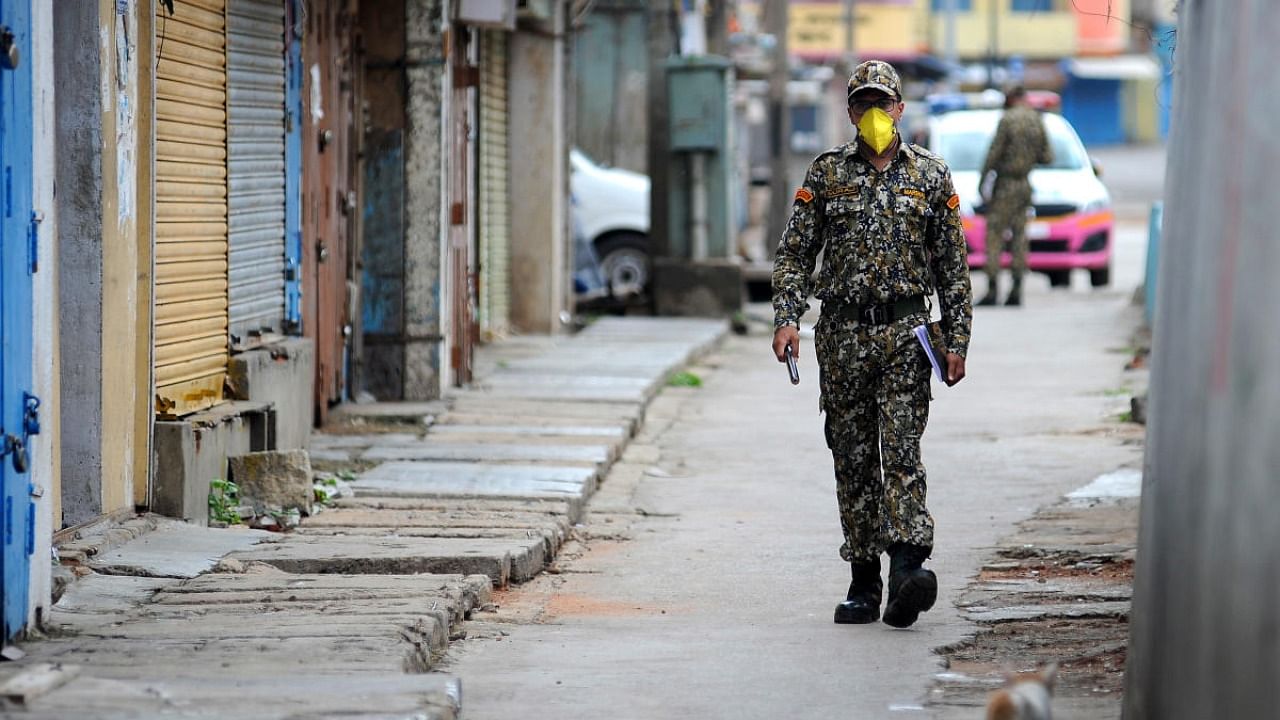
Bengaluru city is marking the first year of the pandemic amidst the gradual surge in Covid-19 cases.
It has been a year since the 40-year-old US-returned techie tested positive for Covid-19 in Kadugodi limits.
Health officials from the Bengaluru Urban district and BBMP officials recalled their ordeal of ferrying patients to the hospital, tracing their contacts and putting in containment measures in the absence of a standard protocol from the state government.
Returning from the US trip, a 40-year-old techie living in an apartment in Kadugodi was diagnosed with Covid-19 on March 8, 2020.
Although the techie had no symptoms upon his arrival on March 1, he was later subjected to an RT-PCR test following symptoms on March 4. The test results, on March 8, revealed that he was infected with the virus and subsequently, his wife and daughter also tested positive.
Recalling the efforts of the health officials, Dr Srinivas, DHO, Bengaluru Urban, said: "When Bengaluru reported its first Covid-19 case, hardly any protocol was in place. Due to this, the health workers and the general public were anxious about the spread of the virus. It was indeed a challenging task for all of us to detect patients and trace their contacts to contain further spread."
Discussions till midnight
"I still remember that on the same day we held discussions with the apartment RWAs till 1 am and explained the precautionary issues. The entire apartment was sprayed with disinfectant and measures were taken to door deliver every essential to the dwellers. The inhabitants also cooperated well with our efforts," Dr Srinivas further said.
Battling the pandemic, the doctors had to ensure that they should not turn out to be superspreaders. "I had no choice but to attend the outbreak. My wife is also an obstetrician and both of us had taken enough precautions to safeguard ourselves. Keeping in mind the lurking threat, we had even sent our kids to native," he revealed.
Dr C Nagaraj, Director, Rajiv Gandhi Institute of Chest Diseases, said the situation was extremely fraught in the beginning.
"Amidst the anxiety, we were largely prepared because we had handled previous infectious diseases such as H1N1. Therefore, we had stocks of PPEs and N95 masks. We were the first Covid nodal centre in the state and had pioneer treatment methods. There was no Remdesivir back then. All we had was Tamiflu to work with, but thankfully we had only one death in that early period."
Case in BBMP limits
While the Kadugodi area was then monitored by the Bengaluru Urban health officials, the first Covid-19 case in the BBMP limits was reported in Indiranagar when a youngster returning from a US visit via the Middle East tested positive.
However, by then, the outbreak of Covid-19 in Bengaluru had already gripped the city in panic and added further to the rising anxiety levels.
"The youngster was shifted to the hospital overnight to avoid public glare. Even in the night, the ambulance was parked away from his house and the infected walked a few meters until the road turns to get into the ambulance," recalled A Siddappaji, health officer, East Zone, BBMP.
"Tracing the taxi in which he travelled in from the airport to the house, people who may have come in contact with him and putting them under house quarantine and other containment measures were a challenging task indeed," Siddappaji recalled.
Yet another health official said, "Initially we struggled to identify the house of every patient and it was even more difficult to convince the primary contacts to stay under the quarantine."
'Everything was new'
Dr Smitha Segu, Nodal Officer for Covid-19, Victoria Hospital, revealed that everything was new to them when the pandemic broke out.
"We had to change how we admitted people, how we tested them and how we had to care for them.
"Matters were complicated by the fact that the outbreak created a lot of fear among our medical staff, which meant that we had to set up mental health support for our team. It was a completely new experience," Dr Smitha said.
Covid-19 tally in Bengaluru Urban
Number of positive cases:4,08,025
Number of discharges: 3,98,540
Number of active cases: 4,985
Number of patients in ICU: 49
Number of deaths: 4,499